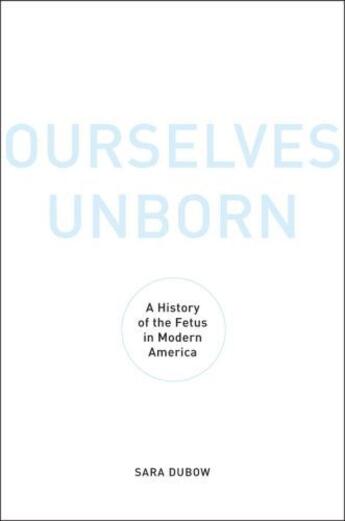Des idées de lecture pour ce début d'année !
Passionné(e) de lecture ? Inscrivez-vous
gratuitement ou connectez-vous pour rejoindre la
communauté et bénéficier de toutes les fonctionnalités du site !

During the past several decades, the fetus has been diversely represented in political debates, medical textbooks and journals, personal memoirs and autobiographies, museum exhibits and mass media, and civil and criminal law. Ourselves Unborn argues that the meanings people attribute to the fetus are not based simply on biological fact or theological truth, but are in fact strongly influenced by competing definitions of personhood and identity, beliefs about knowledge and authority, and assumptions about gender roles and sexuality. In addition, these meanings can be shaped by dramatic historical change: over the course of the twentieth century, medical and technological changes made fetal development more comprehensible, while political and social changes made the fetus a subject of public controversy. Moreover, since the late nineteenth century, questions about how fetal life develops and should be valued have frequently intersected with debates about the authority of science and religion, and the relationship between the individual and society. In examining the contested history of fetal meanings, Sara Dubow brings a fresh perspective to these vital debates.
Il n'y a pas encore de discussion sur ce livre
Soyez le premier à en lancer une !

Des idées de lecture pour ce début d'année !

Si certaines sont impressionnantes et effrayantes, d'autres sont drôles et rassurantes !

A gagner : la BD jeunesse adaptée du classique de Mary Shelley !

Caraïbes, 1492. "Ce sont ceux qui ont posé le pied sur ces terres qui ont amené la barbarie, la torture, la cruauté, la destruction des lieux, la mort..."